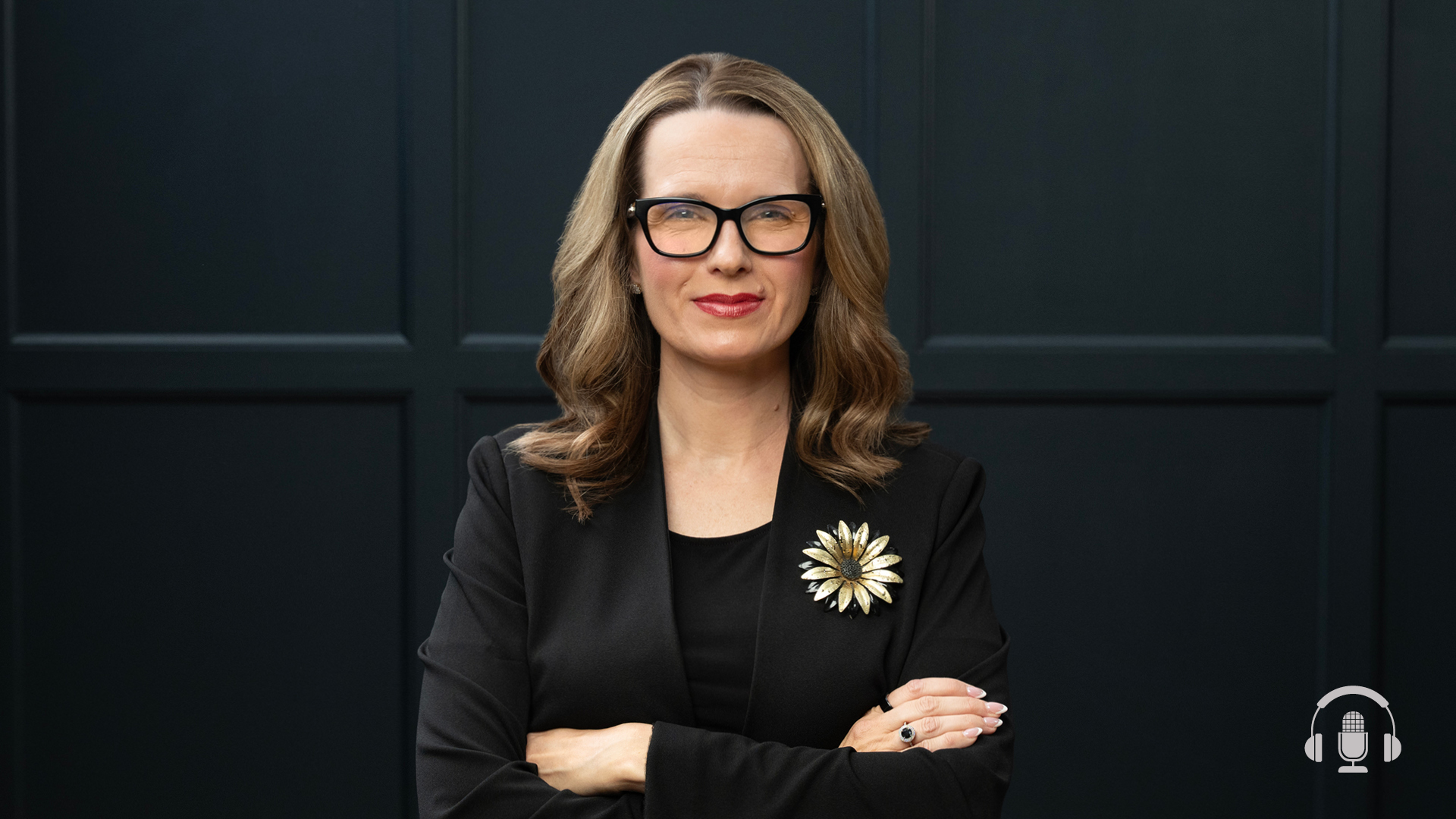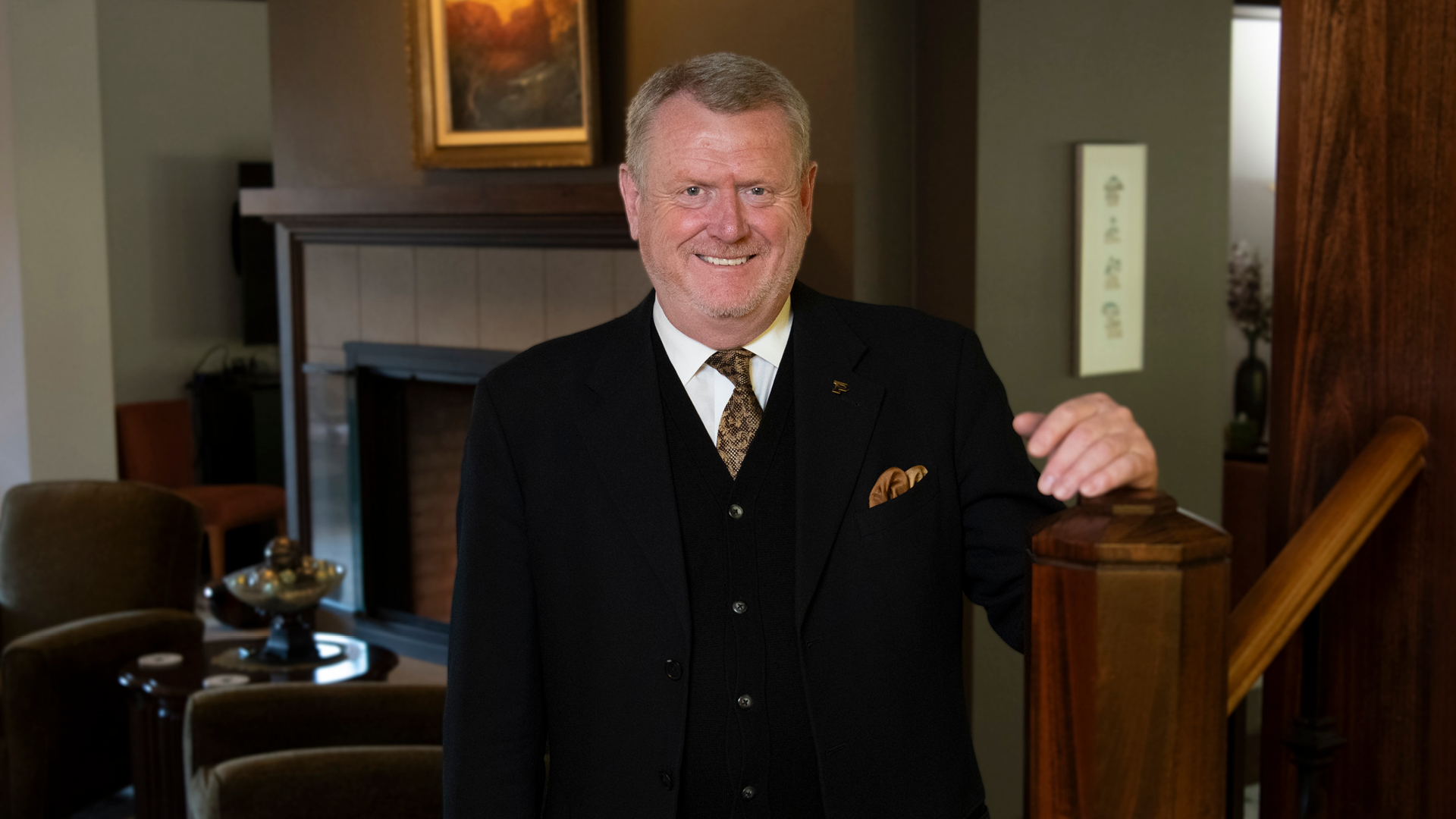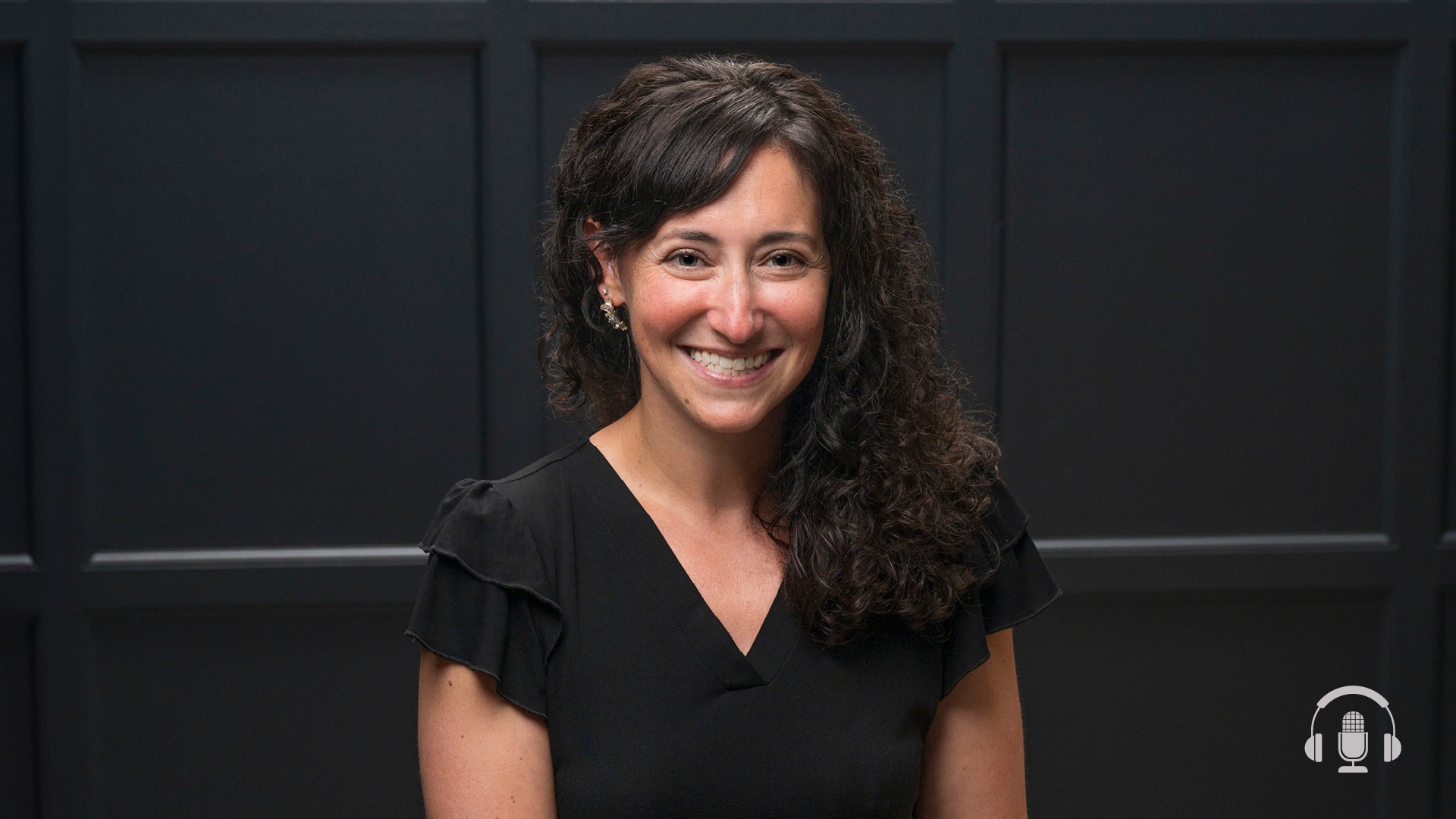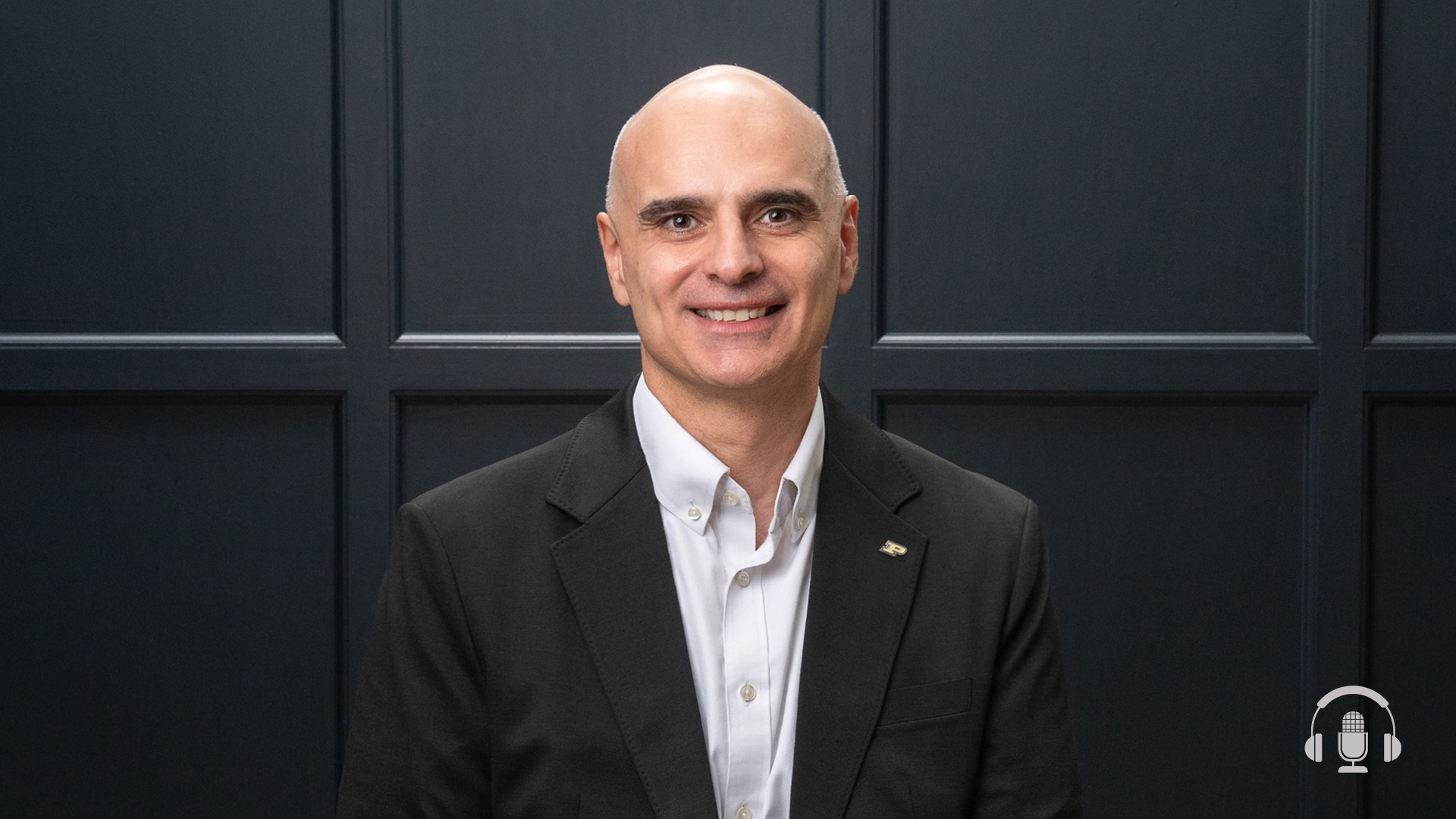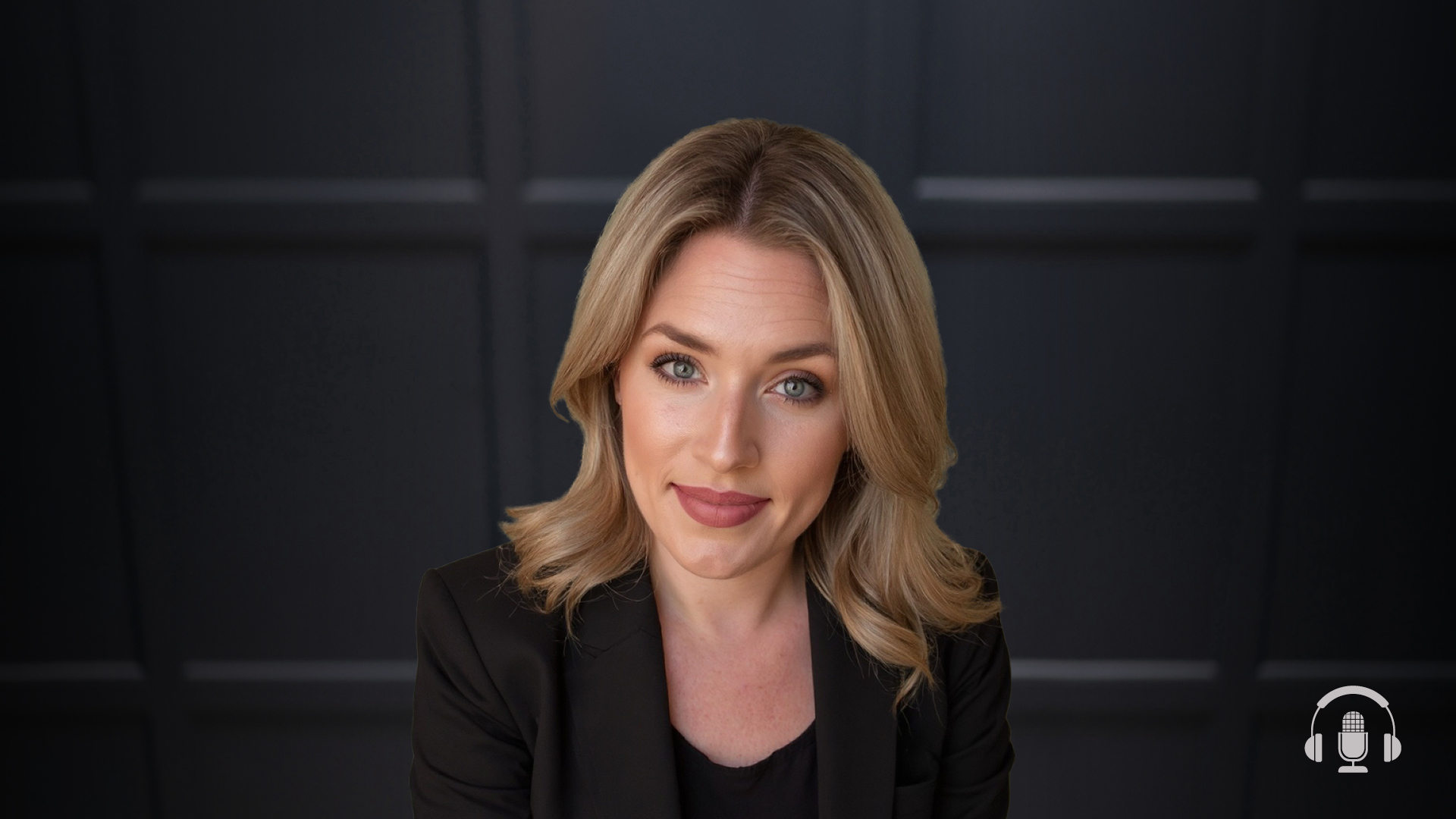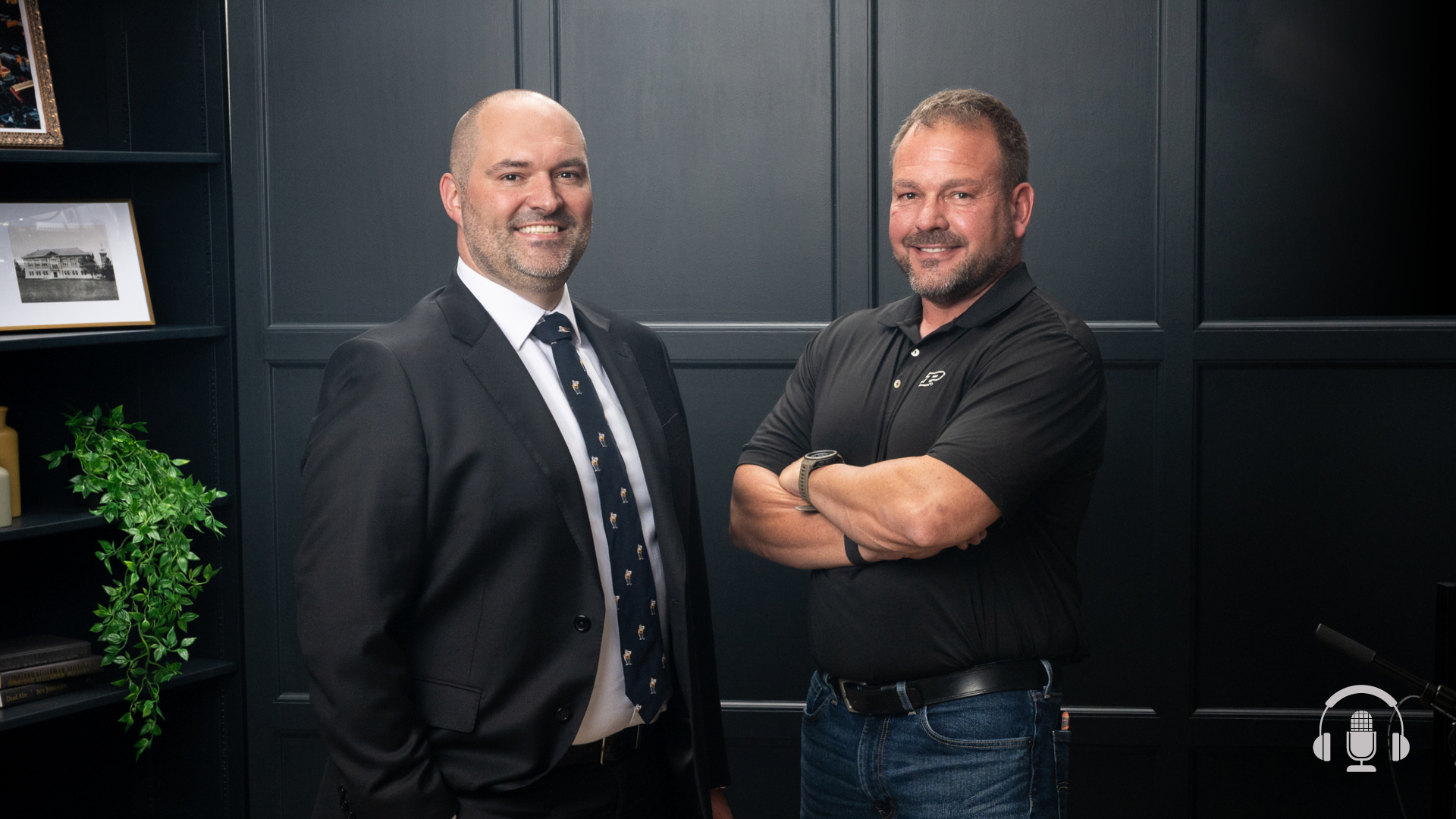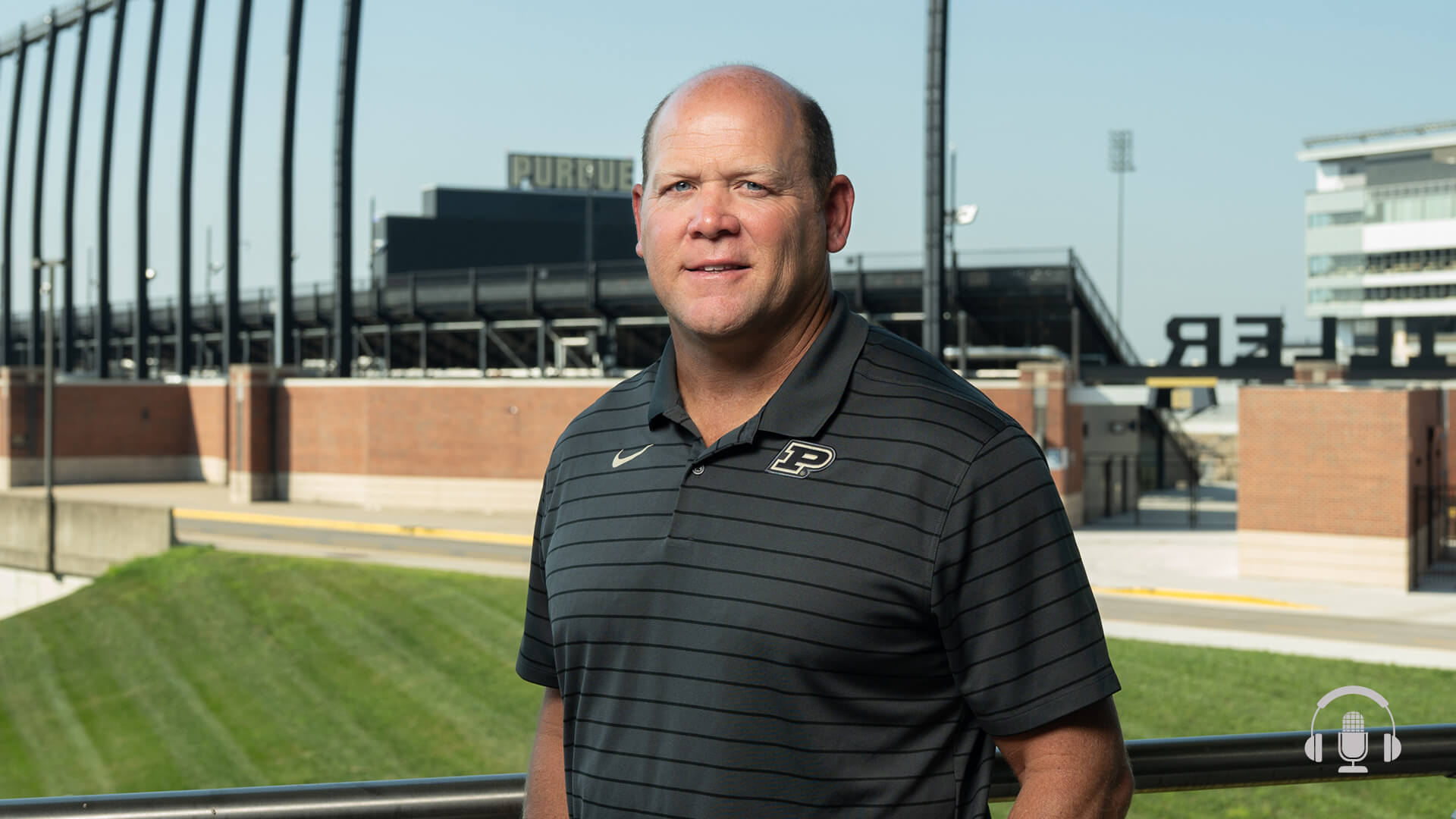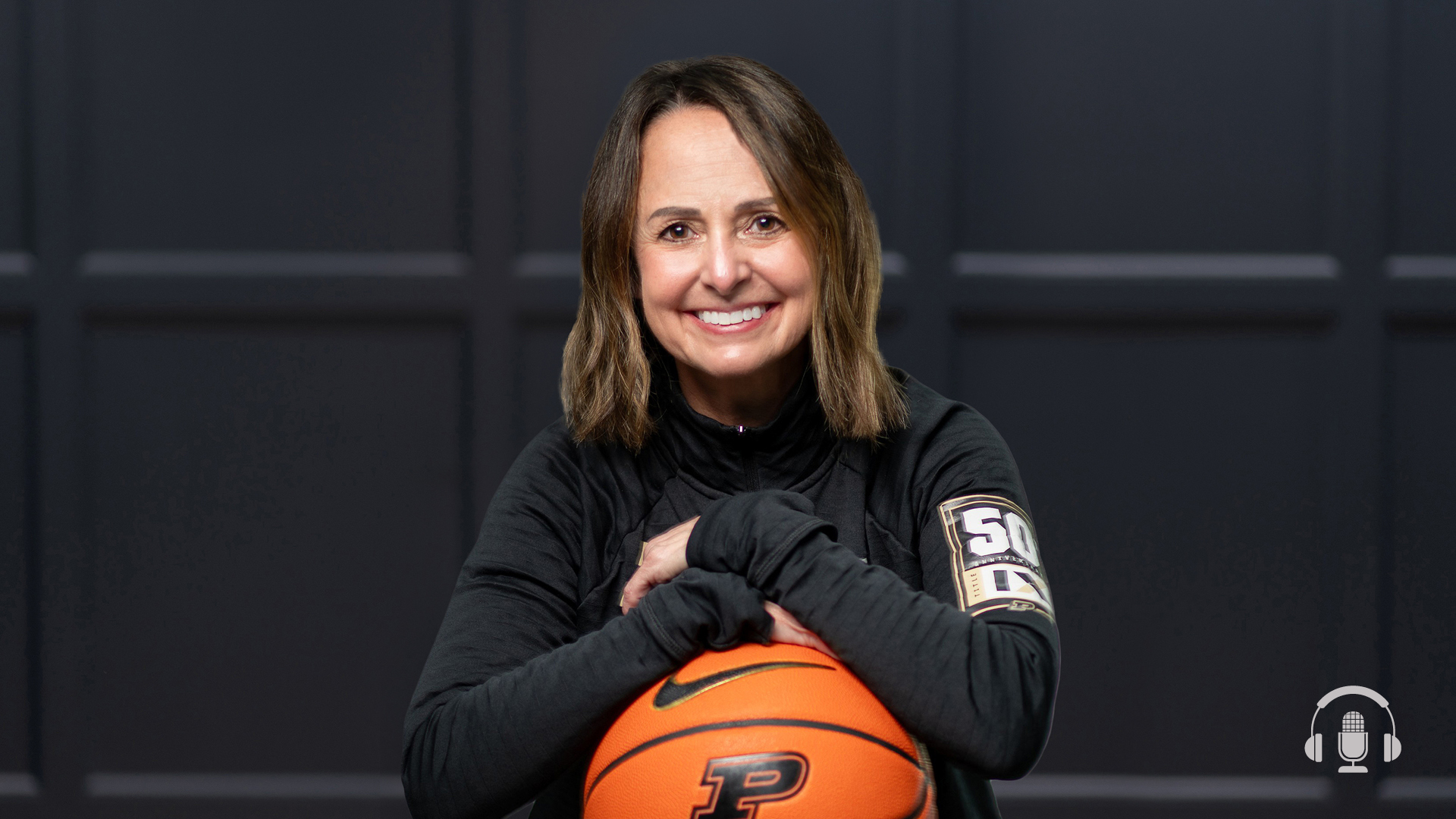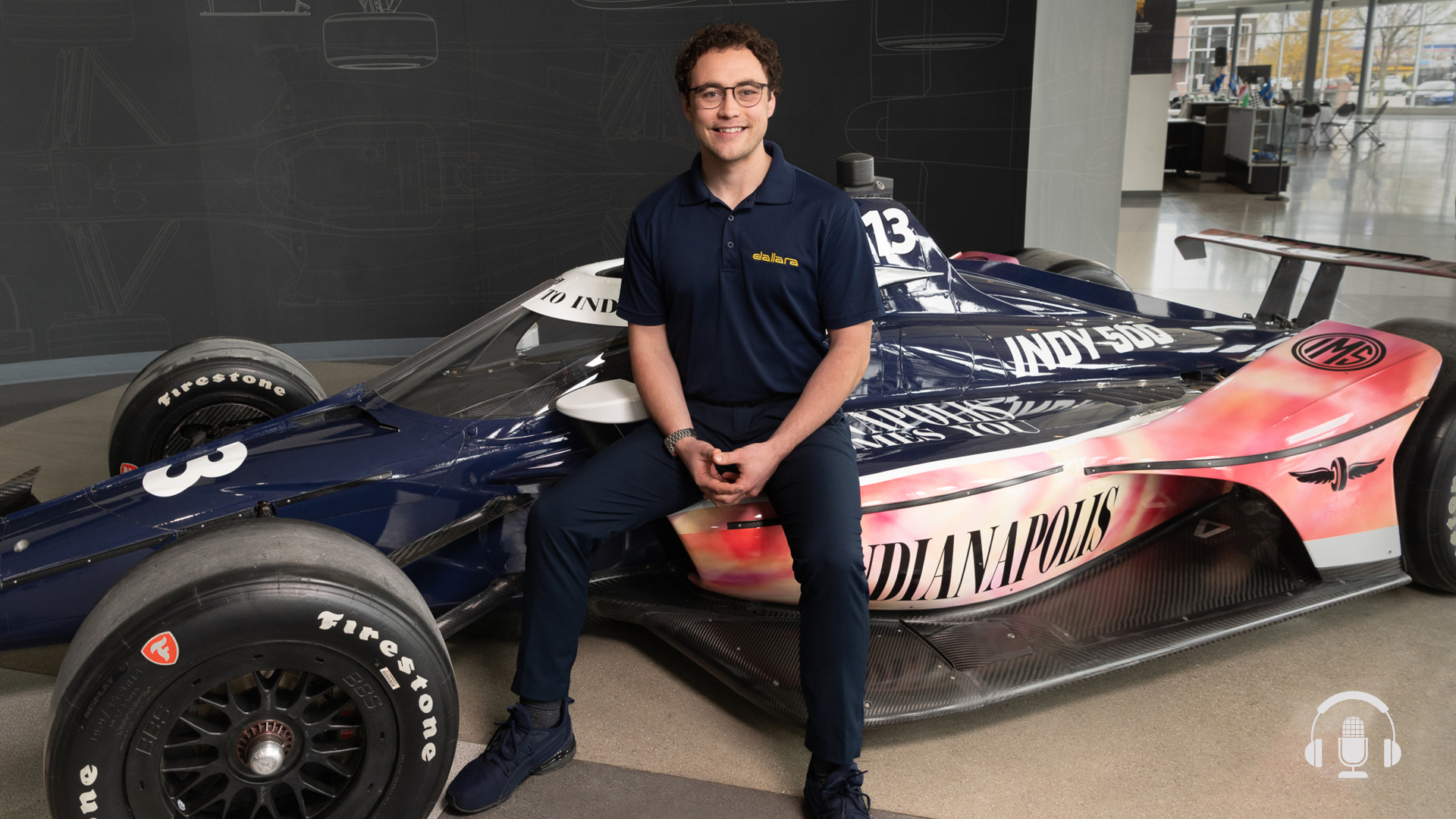Podcast Ep. 138: Lessons in Leadership and Loyalty From Purdue Men’s Basketball
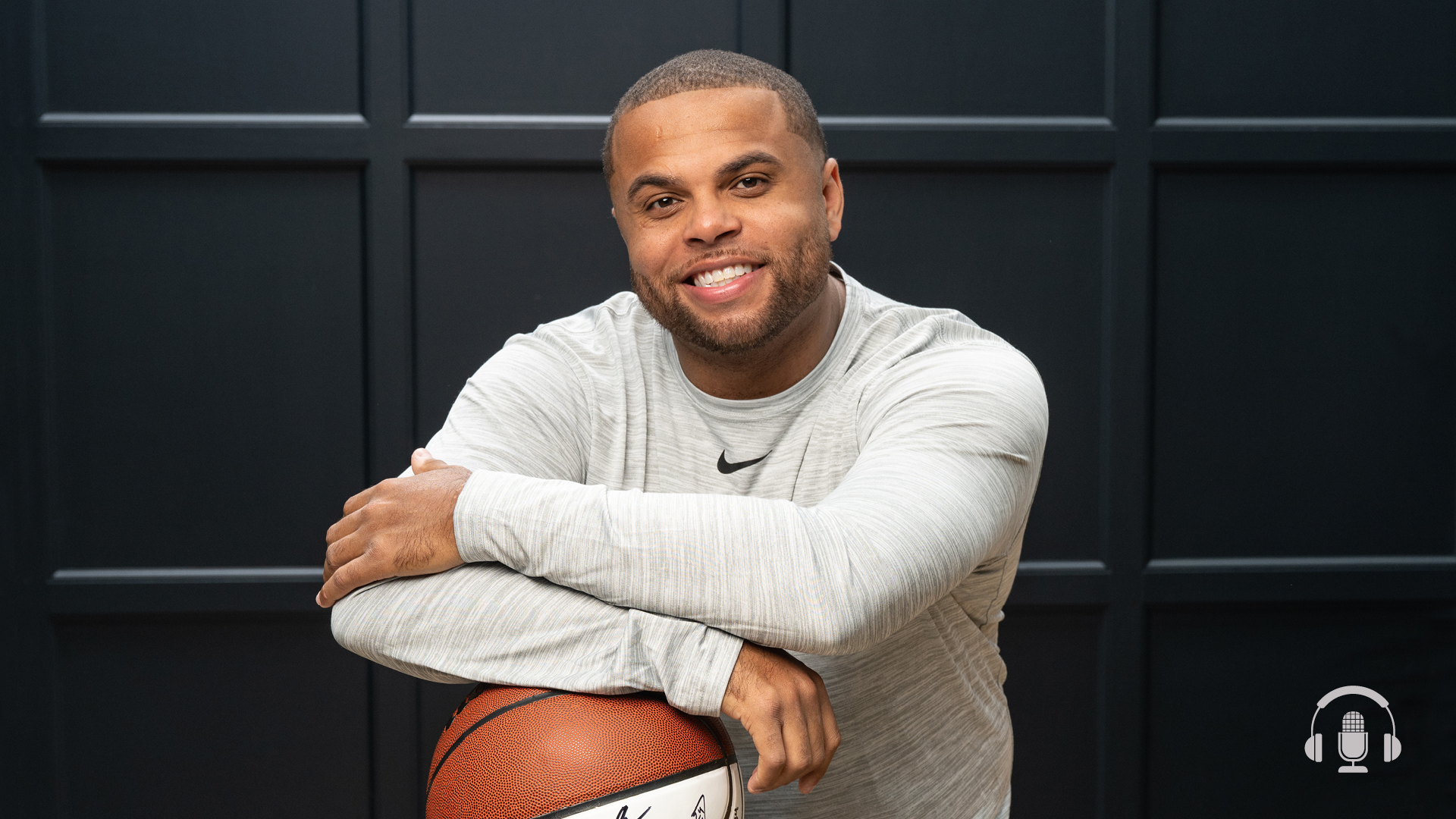
In this episode of “This Is Purdue,” we’re talking to P.J. Thompson, assistant coach for Purdue men’s basketball.
During his time at Purdue, P.J. (BS organizational leadership ’18), was a three-year starter on the team and helped the Boilermakers win the 2017 Big Ten Championship. Since then, he has been part of the coaching staff — helping lead the team to Purdue’s first No. 1 ranking and the 2024 NCAA Division I men’s basketball national championship game.
In this episode you will:
- Hear P.J.’s lessons in leadership from his first five years coaching at Purdue, especially what he has learned from head coach Matt Painter and the legendary former head coach Gene Keady
- Learn about the unique culture of education, loyalty and family that brought the team to play in a national championship game — and helps recruit and retain some of the best players in the country
- Discover P.J.’s focus as offensive coordinator when coaching Purdue-turned-NBA players like Zach Edey and Jaden Ivey, and current stars Braden Smith and Trey Kaufman-Renn
- Find out what qualities Purdue looks for when it comes to recruiting young talent
- Hear how Purdue navigates name, image, likeness in today’s modern college basketball landscape
- Get excited for the 2025-26 men’s basketball season as P.J. shares what he is looking forward to most this season and beyond
- Learn what P.J. wants people to know about Coach Painter and this legendary era of Purdue men’s basketball
Don’t miss this episode celebrating the successes of Purdue basketball on and off the court!
- Watch the full video interview with P.J. Thompson here
- Learn more about assistant coach P.J. Thompson
- Learn more about Purdue men’s basketball
- Learn more about organizational leadership
- Learn more about the Polytechnic Institute
- Listen to head coach Matt Painter on “This Is Purdue”
- Listen to former head coach Gene Keady on “This Is Purdue”
Podcast Transcript
P.J. Thompson: This is Coach PJ Thompson, and you’re listening to, this is Purdue.
Kate Young: Hi, I’m Kate Young and you are listening to This is Purdue, the official podcast for Purdue University as a Purdue alum and Indiana native. I know firsthand about the family of students and professors who are in it together, persistently pursuing and relentlessly rethinking. Who are the next game changers, difference makers, ceiling breakers, innovators? Who are these Boilermakers? Join me as we feature students, faculty and alumni taking small steps towards their giant leaps and inspiring others to do the same.
P.J. Thompson: My goal when I was a freshman, when I left Purdue as a player, I wanted to leave the jersey in a better place than it was. Now I’m transitioning to this side. I tell the kids the same thing, leave the jersey in a better place. And the cool part is we’re reaching heights that we’ve never reached before. And so when you can continue to leave the jersey in a better place, that’s how you become one of the best programs in the country and I feel like we are that.
Kate Young: In this episode of This is Purdue, we are talking to P.J. Thompson, Purdue men’s basketball assisting coach and proud Boilermaker alum. Coach Thompson grew up in Indianapolis and graduated from Purdue in 2018 with an organizational leadership degree. He also played basketball under head coach Matt Painter for the Boilermakers during his time at Purdue. And five years ago he returned to Purdue to join the coaching staff. Since then, he’s had quite an incredible career. We’re talking coaching, Purdue turned NBA players, Jaden Ivey and Zach Edye, being part of Purdue’s first number one national ranking and coaching for the 2024 NCAA national Championship in Arizona. Coach Thompson is diving into leadership in today’s modern world of college sports, the unique culture he’s helped to build within this Purdue basketball program and the upcoming season. After all, he’s coaching the offense for a team that enters the season as one of the leading contenders to win the national title. No pressure of course. He’s genuine, upbeat, and wow, is Purdue basketball lucky to have him. So let’s get to it. Here’s my conversation with Coach Thompson. Coach Thompson, thanks for joining us on, this is Purdue and coming to our studio today.
P.J. Thompson: Yep. Thanks for having me.
Kate Young: We are so excited. You have had so many accomplishments between when you were a player and now as an assistant coach with the Boiler ball. I want to list off some of your accomplishments to kick us off here. So during your time as a Purdue player, you were a three-year starter, you helped the team win the 2017 Big 10 Championship. Now you’re part of the coaching staff you’ve coached during a national championship. You’ve been here for Purdue’s first number one ranking. You’ve had players like Zach Edey, Braden Smith, you’ve got to coach them. So I guess our question is are you some type of a lucky charm for Purdue basketball?
P.J. Thompson: I think I’ve been fortunate to … We talk in recruiting, it could be the right school, it could be the right coach, it could be the right system, but it’s the wrong time. I think I’ve been fortunate to be at Purdue at the right time and it’s been cool to see the evolution just because when I was a senior in high school, I think Purdue was last in the Big 10. And so when Purdue offered me the thing that stuck with me, coach Painter came to see me as a freshman. I was 14, 15 years old. And just the honesty and transparency throughout the recruiting process I committed and they had multiple point guards on the roster. I just thought it was the best place for me. And you get here and for us to get the program back to where it was when the Robbie’s of the world were here, us making the tournament was accomplishment going from last in the Big 10 to making the tournament. It’s been pretty cool man.
Since I’ve been at Purdue, I’ve never not been a part of the NCAA tournament. People coach for 20, 30 years and they might not ever get a chance to participate in it. And so for me, being at Purdue has been awesome experience just because I’ve played or coached in nine or 10 tournaments. And so it’s been a blessing, but it’s a testament to coach Painter and his program.
Kate Young: Did you ever expect coming in as a coach and part of this staff that you would be as successful as you all have been?
P.J. Thompson: Yeah. For sure. I think it starts with the leadership up top. I think people, they’re just destined to win. I think Purdue was great because they were patient. I think a lot of times, and you see in sports, whether it’s the WNBA, NBA, college basketball, people don’t get the opportunity to be somewhere for 20 years. Coach Paint’s seen the highs, he’s seen the lows, but Purdue was patient and they were graceful and gave him an opportunity to learn to get better and that’s what you need. And so Coach Painter being the top, like being the guy, his leadership, so he does things the right way. He always says, “We’re going to win. We’re going to win at the highest level, but we’re not going to lose our soul in the process.” And in a time of college basketball changing and sports changing in general in collegiate sports, you got to stick to your core principles and Coach Paint’s done that and we’ve had great players. You don’t have great teams without great players. And we’ve had a lot of great players come through here to help keep Purdue where it belongs.
Kate Young: Speaking of the whole landscape of college athletics with name, image, likeness has made a dramatic shift in the NCAA. It’s made a dramatic shift for coaches, players. You as a former player, what have you seen within the past 10 years with how NIL has changed the game?
P.J. Thompson: Everything. You used to work as hard as you can to become a pro. And when you became a pro, whether it’s in Europe, whether it was in the NBA, that’s when you got paid. Now it’s different. These kids are getting paid in high school. Obviously Indiana, you’re not allowed to make money as a high school athlete, but kids are making money in high school. They’re doing different deals and it’s just different. And so for us, what’s worked at Purdue is keeping the main thing the main thing. You come to Purdue because you want a great education, you come to Purdue because you want to develop as a young man to becoming a man. So you can go and you’re 22, 23 years old and you can meet with Eli Lilly and they’re ready to hire you. And so for us, we’ve done a great job.
While it’s changing, we’ve still recruited the same way. We don’t go for the most talented kids. We go for what works at Purdue. You got to value education, the family matters, you got to love basketball. But when you have that mix, you can have the success we’ve had. I think we’ve done a great job of still eyeing what works at Purdue. You got to get lucky. Like Zach Edey was 400 something ranked in the country, right? He averaged three points in high school, but he loved basketball. If it was 8:00 P.M. on a Friday night, he was watching film. He was a routine guy. He worked on his game after every practice, before every practice, on his off days. And so those guys, he becomes the two time national player of the year. But at the core, he was always a Purdue guy. And so for us, we just try to look for what we were looking for over the last 10 years, although the landscapes changed quite a bit.
Kate Young: Speaking of family, and you can tell through social media, everyone’s going to each other’s weddings, everyone’s coming back for the alum games. You and other former players are part of the coaching staff. What do you guys do on and off the court that helps foster that mentality?
P.J. Thompson: We’re going to Sasha’s wedding. It was cool. It’s going to be like 600 people there, but all the former players that he invited back. It is just different. We had 350 people at Coach Painter’s house during the alumni game. You saw all the fans that came. It’s a special place. And it’s not like that everywhere. And when you’re part of something, no matter how great everything is, you can take it for granted a bit. For us, we try to just stay in the process. It is a special place. You’re never going to agree with everything that goes on, whether you’re at Purdue, whether you’re at another school, whether you’re at a business. But Purdue man, it’s just different. And I think, like I said, it’s a testament to coach Painter and the people. You talk in recruiting with guys and you can’t ever forget it’s a people business. You want to be around great people. And whether it’s in the athletic department, whether it’s outside of the athletic department, Purdue has great people and it’s relationships. When we’ve had two head coaches in 40 something years, the stability. So if you want to go into this field, well it’s probably one phone call away.
Obviously we’ve had guys that play professional basketball currently in Europe. I did. So we have guys that play in the NBA. But it’s a network and it’s a family and you don’t get the turnout we get from the alumni game if it’s not. I got all American friends. Some of my best friends, man, they were McDonald’s all Americans, they were college all Americans. They played seven, eight years pro and they don’t go back to their school in the summer. They come to Purdue and they want to be around us and I work them out. And it’s cool because Purdue is also welcoming. We’ve had people transfer from Purdue. My little brother transferred, made a mistake after three years and Coach Painter gave him an opportunity to come back and be a grad assistant and he’s going to get his master’s degree from Purdue. And you get your master’s degree from Purdue, you have a relationship with Coach Painter, now you’re in the family, you’re in the system. He’s going to live a great life because of it. And it’s just not like that everywhere. And so we’re extremely grateful just for the people that’s here in the Purdue community.
Kate Young: You touched on in the past 45 years, coach Painter and Coach Keady have been the only Purdue basketball coaches and so many schools can’t say that. What are some of the biggest lessons that you’ve learned from their coaching styles and leadership?
P.J. Thompson: It’s different. Coach Painter tells stories about Coach Kaedy and he was demanding, he was a great leader, but he did little things like he’ll bring them up to the office and he would say, “Did you call your mom today? Did you call your mom and say hello?” Little stuff like that. And when you’re 18 years old, you’re like, “Ah man, what’s he talking about?” But when you get older, you understand. You understand the why of things. And so for Coach Painter being somewhere for 20 years, he’s seen how college basketball has evolved from an X and O standpoint, from a recruiting standpoint. It’s ever-changing in the sport.
And so I think you have to be able to adapt. I think kids are different now than when I played. I think Robbie and those guys, how Coach Paint coached when we played versus them, it was different. And I think when you go through things you just grow, but you got to be able to go through it first and learn, but you got to get the right people. We have the right staff. Coach Brantley played at Purdue, he’s a Purdue guy. Coach Lusk was with Coach Painter before he got to Purdue. Elliot Bloom went to school here. Nick Terruso went to school here. Sasha Stefanovic went to school here. I went to school here. Carson, Isaiah, Coach Terry. He wasn’t in the Purdue family, but Coach Painter is really close with Brad Stevens. And so how Butler used to operate, it’s how we operate. He was comfortable making that decision to bring Terry. When you have the right people in place, I think it’s going to increase your chances of doing special things. And Coach Painter’s done a great job of getting the right people from the staff and I think we’ve done a great job of evaluating. And then with that, Morgan Burke was here as the AD and he helped paint through some hard times. And then Mike Bobinski’s come and I think he’s elevated some things.
Purdue is an innovative school. Purdue’s always trying to be better. We’re always trying to be the best. And when you have the support around you that wants you to succeed, they make it hard on us not to. But you don’t see the stability we’ve had here. And it is for a reason. Purdue is a special place and coach Painter’s continued. It’s hard to follow a Hall of Fame coach and he’s done that and he’s taken Purdue to a new level and it’s because of how great he is. He’s a Hall of Fame coach himself. I don’t think you necessarily get the love and your flowers when you’re in the midst of doing something, but I think whenever Coach Painter is done, I think people will finally understand what he’s actually been able to accomplish while being the head coach here at Purdue.
Kate Young: How has he helped you since you started as assistant coach five years ago, develop your leadership skills? How have you evolved as a coach over the past five years?
P.J. Thompson: He’s just a great dude. Outside of basketball he’s a great guy. You can talk to him about family, you can talk to him about your relationship. You can talk to him about any advice you need because he’s probably been through it himself. It’s not just about winning and losing and trying to get to that next contract. And I think in the business, I’ve been fortunate to see the good part of college basketball. Coaches can be car salesmen. They can manipulate things to get what they want out of the situation. And Coach isn’t about that. Little stuff, man. He buys our staff lunch every day. You don’t got to do that, but he buys our staff lunch every day because he’s a people person. Coach Paint, he’s a basketball guy. His mind is always racing about basketball, but coach just wants to sit and talk. He just wants to be a guy and be around the guys. And to see him as a coach is so different than what you thought as a player because 18 to 22. I haven’t met an 18 to 22-year-old, including myself when I was 18 to 22, we think we know everything and we think these guys are not regular people.
And so to be on this side with him and see he’s a regular dude that he just loves you and he cares and he’s not going to do it by picking up the phone and texting you all the time. He’s not going to call you all the time, but when you need him, he’s there. I think that’s more important because lip service is easy. I can tell you anything you want to hear, but what are you going to do when I need you? There’s been multiple times seeing him on staff do things for his former players that it’ll never get out, but that’s the type of guy he is. Nor does he want it to get out, but just seeing his leadership outside of basketball, because my respect for him, I always thought when I was a player, he was one of the best to ever do it from a basketball standpoint. And now I see him in a different light. He’s more of a friend now. He’s more of a father figure. And so it’s been cool to see that evolution of coach.
Kate Young: Absolutely. He’s so well respected. Bringing us back to NIL, we were talking a little bit before this about players staying here and loyalty and how we’ve said 18, 20-year-olds don’t always have the best judgment or they think they know everything. What does the word loyalty mean to you when it comes to basketball and how do you foster it within your players?
P.J. Thompson: Yeah. It’s a great question. I think for us it’s doing the research prior. We don’t just bring kids in because they’re good at basketball. We do DISC personality tests. We get to know the kid inside of the kid, not necessarily the out. You can be preventative in bringing kids in by the work you do prior. Are they changing high schools? Are they going to three or four different high schools? Are they going to three to four different AU clubs? If they’re leaving those guys, they’re probably going to leave you when they get to college. And so we try to do the work before and keep getting the right kids because if you got the right kids, we know basketball, we know how to win. I think that’s been proven. It’s just getting the right kids. And throughout the changes of college basketball, our focus in getting the right kids have stayed the same and our kids focus are the same.
And so when you talk about giving these kids at such a young age, all this money, a lot comes with that. But we’re preventative. We have people from campus police to the campus banks to NBA personnel. We have all these different people come and talk to our guys and be preventative because we don’t want something to happen and it’s on ESPN the wrong way. And now we’re trying to fix it. We want to be preventative. We want to teach them and still educate them because education is still at the forefront. We want kids to come to Purdue because they know that the Purdue education’s powerful and because we always say you’re going to be a former player a lot longer than you’re going to be a player no matter how good you are, like Zach Edey is amazing. He’s ninth pick in the draft. Jaden Ivey is the fifth pick in the draft. God willing, they’re going to live on earth as a former player longer than they are a player.
And so you got to be able to go back and have something to rely on. And so if you’re going to two to three different colleges and these college coaches are getting a job every three to four years, who’s going to help you? Because at some point in life, everybody needs help. Coach Paint didn’t get that job because he’s great at basketball. He got that job because Coach Keady. I’m not at Purdue now because I’m great at basketball. I’m at Purdue now because of Coach Painter. And that’s just a basketball example. But at some point in life, you’re going to need help. And so when you’re loyal to people, no matter how many points you average, no matter how many assists you get, again, it’s a people business.
You got to be able to rely on good people to help you. And I think that’s why our guys stay and they’re loyal because at the end of the day, they know they might not agree with everything I call offensively, they might not agree with everything we do in practice from a practice standpoint, but at the end of the day, it comes from a good place. All we want is to help them on and off the court be the best version of themselves. And I think a lot of times when you’re in it, you don’t really get it. But I think as you grow older, you go through different experiences in life. When life gets hard, you remember some of those lessons and so that helps you get through it and helps you move forward.
Kate Young: Loyalty is of course a two-way street. How do you prove your end of the deal to your players?
P.J. Thompson: It’s not just proof from what we say. We’ve taken four transfers in five years. Two of them are on this team. And that’s among the lowest in college basketball. We go in the portal out of need. We needed to become better defensively. We needed to become a better rebounding team. And so we go get the second-best rebounder in the portal. We needed to get Oscar Cluff. Dames coming off of a leg injury. He’s young. Trey Kaufman was playing out position, although he had a great year, we needed help with Liam at the four. We knew it was going to be a smaller role. We were honest with him. We were transparent in the recruiting process. But him coming to Purdue, being able to get a degree after his experiences, he’s had at his different stops, he’s still willing to come and be a part, even though it may be a smaller part because he is backing up in All American, he’s still willing to do so because of the transparency.
And then guys on our current team, like Trey Kaufman was an All American last year. He red shirted when he got here, he got offered from North Carolina, which is a blue blood, of the best historical programs in the country. He was a highly ranked guy, but he just wasn’t ready right away. And so instead of just, ah, that kid’s not ready, let’s go get someone else we developed him. We have a plan for him. He backed up Zach Edey. A lot of kids would’ve left, but he stayed through it and now he had a heck of a year. He has the opportunity to have his jersey be in the rafters. So in 20 years when he comes back to Purdue, his Jersey’s hanging up. But he also has the opportunity to play in the NBA. And I don’t know if he would’ve had that, if he didn’t stay through it.
Guys like Braden Smith, we’re just fair, we’re fair, we’re honest. We don’t promise people things. it’s easy to remember what you say because you tell the kids the truth. And so Braden’s hearing the same thing that Fletch is hearing. You have opportunity here. The timings right, you got to work and come get it, but the opportunity’s here for you. And so when every kid is getting that message, that’s all you want as a basketball player. As a high school kid coming in, you just want a chance. You want to know what’s going to be fair. I want to know that, okay, you’re paying me the same thing. We’re coming in, but I’m 60 spots ranked lower. Like C.J. Cox started the most games as a freshman and he was the lowest ranked guy. It’s a production business. But you have opportunities like that because we don’t promise people things and it’s all about the work and the fit. I think all those things go into why it’s a two-way street. It’s not just lip service with us. We prove it and we have the backing. We show them and we tell them.
Kate Young: What are some of these non-negotiables that the team holds firm even in this current landscape with the NIL? What has Coach Painter done to instill that culture within the coaching staff for you all?
P.J. Thompson: Yeah, nothing changes. We get back on the road at 3:00 AM You got class at nine. It’s your job to be in class. It’s your job to be attentive in class, pay attention. It’s your job to get your work done. It doesn’t matter how much money you make, it doesn’t matter that we’re the number one ranked team in the country. You’re here for education first. Coach tells all his recruits this, and I think it’s really cool. I think the parents get it more than the kids, but you got to have two dreams. You got to have a dream through education. You got to have a dream through basketball. Obviously he says no one’s going to be dreaming about biology, right?
Kate Young: Maybe.
P.J. Thompson: Yeah. Some people do. But you got to be able to understand you’re going to be a former player longer than you are a player. And so getting your degree matters. Having those connections and resources outside of the athletic department matters. You’re going to meet people on campus that aren’t athletes that you may be friends with the rest of your life. I think our non-negotiable rules are just doing the right thing, showing up every day, having a positive attitude, going to class, working hard. If you don’t come to Purdue and you don’t work on your game from a basketball standpoint, you’re going to stick out because everyone does. It’s a competitive environment. And when you’re in a competitive environment and things are relatively equal, you got to be able to do the necessary things to put yourself in position to reach your goals. You can’t say you want to be an NBA player, you want to be an all-conference player, you want to help Purdue win, but then you’re the 10th guy that wants to work out with our GAs. Your goals and your dreams has to match your work. And staying out of trouble, just keeping life simple.
We try to tell that to our guys. When you recruit a lot of the guys, people talk about culture and stuff all the time. We don’t because when you come to Purdue, we’re not going to change for you. You’re probably going to succumb to the environment and the culture that’s already in place because that’s what’s won, that’s what’s developed people, that’s what’s graduated people. That’s what’s allowed Purdue to have arguably the most success the program’s had in a long time. For us we try to stick with that. It’s a cool store. Like Grady, they’re building something special hopefully at Notre Dame. Grady Eifert’s one of my best friends.
I was on the road, I feel like I was driving in the mountains. I think I was in Utah. And Coach Shrewsbury, he’s a great dude. I look up to him from a basketball standpoint because when I was younger on staff and he was running the offense, and I learned so much from him, and I looked at him in that stratosphere of Paint of the basketball gods that you want to hopefully one day be able to be like. But Grady called me one day and he was like, “Yo, P, how often do you guys play open gym?” And I thought about it. I’m like, “Dude, I have no idea. Our guys play because it’s just what we do.” I don’t have to micromanage Braden Smith. I don’t have to micromanage Antoine West because. One’s a senior, one’s a freshman because they know what to do. It’s in place. It’s in place for you to come to Purdue and succeed.
And so it was just cool because this is a program that paints half for 20 years. It’s at the mountain top and they’re trying to get there. It was cool for me and it puts things in perspective. I try to look for things to put things in perspective because when you’re in it and you’ve been at the same place for so long, you got to continue to be grateful and you got to continue to understand how special it is. And it’s hard. It’s really, really, really hard in life to not take things for granted. And he said that to me and it registers. It’s like, man, it’s pretty cool. We got it going on. We don’t have to worry about what 90% of college programs are worrying about.
Kate Young: They’re playing because they want to play.
P.J. Thompson: Yeah. Exactly.
Kate Young: My mom was Grady Eifert’s, kindergarten teacher. Fort Wayne proud.
P.J. Thompson: Wow. Good luck to your mom.
Kate Young: When it comes to recruiting though, I know you said you don’t really have to do a lot because you already know if they have these Boilermaker traits for the most part. But are there any specific things when you’re talking to these younger high school kids that you’re specifically looking for that they will fit in with this Boilermaker mentality and culture?
P.J. Thompson: Little things like how do they communicate, how do they receive coaching? If a coach takes them out, are they shaking hands with their teammates? Are they still engaged on the bench? If they miss five shots in a row, are they going to shoot the six? From a basketball standpoint, I think it’s easy to tell when a kid can shoot and when a kid can’t shoot. I think it’s easy to tell if a kid can be good and pick and roll in our system and if he can’t. And so for us, I think the basketball piece, for me, I think it’s easy because I know my boss, I know what he wants. I know what works at Purdue. I run our offense. I know what we’re looking for from an offensive standpoint. Obviously the pieces have to fit together, but I think it’s more so getting to know the person too.
Like the Friday night, what are they doing? Or do they get in the gym? Do they text you back? Do they communicate Well? No one’s perfect. You’re going to have to teach them. That’s part of the gig. We got to teach them things too and we got to help them grow in areas. But I think the non-negotiable is just are they doing the right thing? Do you listen to your high school coach? Do you listen to your parents when they come on visits? I don’t think it’s magic from that standpoint. I think the basketball piece is relatively easy. For us it’s getting to know the person.
Kate Young: Hey listeners, you can use Code THISISPURDUE for 20% off of one item at the official Purdue team store. Gear up for game day with your favorite gold and black accessories and apparel. Check out all of the new items, including the new Brianna Cannon collection at purduteamstore.com. Use code THISISPURDUE, all one word for 20% off one item. With everything that you’ve learned during your time at Purdue, what advice would you have to new coaches, even business leaders in the everyday world about building a strong culture and in an environment where things are constantly changing?
P.J. Thompson: Just continuing to understand what does your business stand for? What are you looking for? You got to recruit the people. We’re not having 10 different conversations behind coach Painter’s back like, “Oh, we should do things this way. We should do things that way.” Whether we agree or whether we don’t agree, it’s our job to do what’s best for Purdue. And when I was younger on staff, I’ve been fortunate enough to be a J. I was picking up lunch every day. I had a different relationship with the players back then because I was here more than the coaches because as an assistant, you recruit a lot. In the last three or four weeks, I’ve been gone a ton from different states to state. And so you got to check on your guys still like the most important team and it can get lost in recruiting. But the most important team is your current team. You can’t worry about two to three years in the future. We got to worry about this year’s team because we have a special group.
In sports you’re not going to always get to play on teams like this one. This could be some of the most fun some guys on this team ever has in their career. And I’m not talking about the guy that lowest on the totem pole. This could be Braden Smith’s best year of his life, maybe, right? It could be Trey Kaufman’s best year of his life from a team standpoint. And so we want to have an environment where. I told him in our preseason meeting, be where your feet are. Braden, you want to break the NCAA a all time assist record, but what’s your attitude going to be like if you don’t get 15 assists in the game?
Fletcher, what’s your attitude going to be like if Omer finishes the game and you don’t and you’re a senior. Like Trey, what’s your attitude going to be like if you don’t score 20 a game? We have a special team, and so our key word that we’ve used is sacrifice. Everyone has to sacrifice. Coach Paint sacrifices every single day and he doesn’t micromanage. He allows everybody to do their job because he brings us here to do so. And I think when you’ve been somewhere for 20 years and you’ve had the experiences he’s had, I want to say it’s easier to do that. But there are coaches that aren’t like that. Because when you finally sit in that seat, I can’t know what it’s like to sit in his seat because I never have.
Well, we’ve had Coach Lusk, he’s been a former head coach before. And so Coach Painter can relate to him because Coach Lusk is the only one that really knows what it’s like to be in that seat because it is different. And so what I’ve loved about Coach Paint’s leadership is we lost to a 16 seat. I was player of development. I was helping Terry run the offense. My job was to help teach him the offense, and I worked directly with him because of the NCAA rules. I couldn’t even be on the court. And so we lost to a 16 seed. Coach Paint decided to make a change for Purdue, and I think I was 26 years old and I’ve become the offensive coordinator. Purdue. I had the best job in the country, in my opinion as a 26-year-old, we’re number one in the country. I still think as a 29-year-old, I had the best job in the country. As a 29-year-old it was a process to get there. And Coach Paint didn’t give me the offense and he didn’t sit him office every day and shoot a thousand ideas. When we’re in the course of a game, he’s not telling me a thousand things to run. He lets me have my white board and he lets me do what I see.
And then after we come together, we figure out what went well, we figure out what didn’t and we move on. But as a leader, you can’t micromanage. You got to trust the people you’ve put in position to do their job. And if they’re not doing their job, you got to make changes. And so I would tell for a business leader that’s not a head coach, you have to get the right people. And that’s been the theme, I feel like of this podcast. But Purdue has the right people in place outside of athletics, and I think we have the right people in place in athletics to allow Purdue as a whole to be one of the best programs colleges in the country outside of basketball.
Kate Young: I love that. Be where your feet are. Soak it in.
P.J. Thompson: Yeah.
Kate Young: While you can, right?
P.J. Thompson: Exactly.
Kate Young: Okay, so the upcoming season, there’s a lot of buzz.
P.J. Thompson: Yeah.
Kate Young: I don’t know if you like talking about that, but is that a ton of pressure too?
P.J. Thompson: I think pressure comes with it. It’s our job to win. Purdue is a place that’s won. It’s our job to win. And we understand that. I’ve been on talented teams that didn’t make a final four. I thought my team, my senior year was good enough to make a final four. Isaac Haas gets hurt. I think Jaden Ivey’s last year in college we lost to Saint Peters. I think that team should have been a final four team. We didn’t. We’re not going to just snap our fingers and we’re in the NCAA tournament. It’s a process to get there. We have to be great in the summer now we got to be great in the preseason. Now practice have started. We have to prepare. It’s not going to be perfect. We’re not going to win every game we play no matter how bad we want to. It’s our job to put ourselves in positions to have the best March in April possible but it’s no guarantee because we got Oscar Cluff and he’s a great rebounder that doesn’t mean Purdue’s going to be a great rebounder team. We still got to do the job. You still have to actively go get the rebound and you have to do it every possession.
So it’s not magic because we have a talented team, because we have a lot of guards that can do a lot of different things, and we haven’t had that all the time in the past. That doesn’t always equate to success. You never know. Being where your feet are attacking every day and just getting better, and then you just want to put yourself in the best position. Historically, the number one seeds, they have a better chance to get to the promise lane. And so we want to continue the season to put ourselves in position to have a great ending, but it’s never perfect. I’ve been a part of teams. I’ve seen teams. We lost four seniors that year. I think that team, I was overseas playing professionally that year. I want to say they started six and four ish they were a 10th of a second from going to a final four and nobody thought that team would. And so just because this team’s talented, just because we have seniors and we have young talented players, there’s no guarantee.
And so for us, just stay in process space. We talk about it in basketball if you go one for 12 over the course of a season, continue to take the shots that you’re going to shoot because you’ve proven to be one of the best shooters in the country, but to stay in process space, you can’t live always in the present. And so we take that from an individual standpoint and a team standpoint, and then hopefully at the end of the year we put ourselves in a good position to accomplish some of our goals.
Kate Young: What does it mean to you in the team that the final four is in Indianapolis?
P.J. Thompson: I’m excited. It’s cool. Since I’ve been on staff, we go to the final fours, and so obviously that one year we participated in it and it was unbelievable. It’s going to be pretty cool being in Indianapolis where some of our kids are from and being right up the street for us. But again, if the final four was in Utah, we would have the same goals to go there and win it. And so it just happens it worked out that way. Maybe stuff happens for a reason, I don’t know. But it’ll be pretty cool. I know that if we’re fortunate enough to get there, I know we’re going to have a great deal of support. We felt that last year playing Houston in Indianapolis. So I’m excited. It’s going to be great for the city. I think the city does a great job of hosting events. You saw it was cool after our season, the Pacers going on their run, the Indiana Fever, they’ve had a heck of a year despite a lot of adversity with injuries and stuff. It’s a basketball state. Midwest is a basketball place. Indiana’s arguably the best basketball state in the world. So it’ll be cool for the city and hopefully for some Purdue fans if we can do our job.
Kate Young: So we have Daniel Jacobson, of course, Braden Smith, Fletcher Loyer, Trey Kaufman-Renn. You talked a little bit about Oscar Cluff, incredible team, people coming back, people transferring. What are you most excited about for this upcoming season?
P.J. Thompson: Yeah. I’m just excited to just get better. We are on such a good team like this. Each person on our roster is going to win us a game at some point Aaron Fine, Sam King, their walk-ons and every single day, Jack Luzt, Slim, every single day, they work their butts off to help Purdue become better, only in hopes that we beat a team by 20 or 30 and they can hopefully get in at the end of the game and play in front of the fans. And so when you’re a part of special teams, you appreciate everybody. Because all the work that they do, it doesn’t get seen. But every single day they make Purdue better. Every single day because they don’t make the money that our guys make. They don’t have articles written about them. They’re not on cool podcasts like this, but they love Purdue and they care about making Purdue better.
I always talk about my goal when I was a freshman, when I left Purdue as a player, I wanted to leave the jersey in a better place than it was. And now in transition to this side, I tell the kids the same thing. Leave the jersey in a better place. And the cool part is we’re reaching heights that we’ve never reached before. And so when you can continue to leave the jersey in a better place, that’s how you become one of the best programs in the country. And I feel like we are that. Over a course of a whole season, man, it’s going to be different guys. It’s not just going to be Braden, TK, Fletch as the older guys that’s been through it. It’s going to be the freshmen, it’s going to be the sophomores, it’s going to be the juniors. And so Raleighy’s been through adversity with injuries.
Daniel’s been through adversities with injuries. Guys want to play more minutes, and we have a lot of people. They’re ready because of what they’ve gone through in the past. And so I’m just excited to see our guys man play in front of our fans. I know our fans are itching to watch us play. We’re itching to get out there and play for our fans and for the Purdue faithful. So I’m just excited to get going. You got to stay in the process. Like right now I’m so tired of practice and we just got started, so I want to play somebody else. I’m tired of playing against each other. I want to be on the same team. I’m a team guy. I think the people we have in our organization, like I talked about in our community, I think that’s all we need. I think we have a great deal of support. I think we have really good players. I think we have a great staff. I’m just excited to go to battle with them and experience a season because there’s so many different highs and lows.
I think when people watched us play against Auburn last year or watch this play against Marquette or watch this play against Texas A&M they’re like Purdue might be in trouble. And so as a coach, we schedule hard to help us try to win a game at the end of the year, and you watch us play against High Point, you watch us play against McNeese State and then you watch us play against Houston and it makes sense. It makes sense why we did what we did to get to that point. During that process though, you got to relax and understand it’s a bigger goal at hand and it’s a process to getting where we want to go. So right now we’re in that where we just got to stay in that moment and you’re not going to win the Big 10 whatever today is. You got to just continue to take steps in the right direction.
Kate Young: When people look back at this era of Purdue basketball, what do you hope they say about it?
P.J. Thompson: When it’s all said and done? I just hope Paint gets the respect he deserves to be honest. I’m at Purdue and I want to stay at Purdue because I want Coach Paint to get his recognition he deserves. I’ve said as a player, I thought he was one of the best in the world at what he does. I think being on staff with him, I think he’s one of the best in the world at what he does. I want to do it for him personally because he changed my life and he gave him the opportunity and he didn’t have to and not a lot of people did. And so his belief in me is bigger than words. I don’t need Coach Paint to text me and tell me loves me. He does it with his actions. I want to do it for him, but also want to do it for the players because we’ve had so many players put on a jersey and as a coach, I’m learning every day, and a big part of the gig is recruiting, and I mentioned it before, but the most important team is your current team.
But also with that, there’s been a lot of people that put on the jersey that in the last 45 years and prior, that deserved this feeling that we have now, but they didn’t get it. They deserved to get paid and they didn’t get it. You want to do it for Coach, and I think that’s at the forefront for me, but I want to do it for the people or guys that chose to come to Purdue. It’s so hard. It’s so many times in recruiting you get told no. But Purdue is a special place again because of the people and the players we’ve gotten. So I want to do it for them because they should feel a part of it too.
You don’t have that turnout at the alumni game if they don’t. It’s a lot of people that when you look back, they helped us get to this point. We don’t get to this point without the players that came before us. It’s just not possible. There’s been a lot of people that continue to raise the level of Purdue basketball to give these guys this opportunity. And so along with Coach doing it for those guys, because at the end of the day when those guys come back to campus, it’s cool to see the smile on their face and to hear the stories they tell. Like Purdue, you’re four or five, six years, however long you’re here, it’s 60, 70-year-old men that come back, 50-year-old men, 40-year-old men. It seems like they’re most excited about that time in their life.
So it’s a lot of people, the fans, I think they deserve it. Supporting the team for so long as a fan, it can drive you crazy, the ups and the downs of things. But one thing I don’t think fans understand what puts into it too. There’s not a second of the day that goes by that I don’t think about Purdue basketball, not a second. I have other relationships. I have a girlfriend. I have family that get put on the back burner because of the gig. And I think fans don’t really understand that we’re normal people too, and there’s a lot of people that want Purdue to be successful. But I think the culmination of all those things is what I want to look back and be like did it for them.
Kate Young: Okay. We’ll wrap it up here coach. You’ve talked a ton about Coach Painter, your respect for him. You’re clearly so passionate about Purdue basketball. Is there a dream and a hope for you to maybe be a head coach one day?
P.J. Thompson: Yeah, I think that’s the goal for me. I definitely want to be a head coach. I think I work hard to do that. I’m learning. I don’t want to make mistakes. I think people rush into things. You feel like you’re ready. You feel like you’ve gotten enough experience. I’m a big believer that everything happens for a reason. I’m here for a reason. The number one focus that I have right now is making Purdue better, it’s helping this team win. I think my individual goals will play out how they play out. I’m more focused on helping Purdue win and learning and getting better.
I’m 29. I feel like I’m just getting started. There’s not a day that goes by where I’m not learning, asking questions. Like when Coach Paint talks, he probably thinks I’m crazy because sometimes I don’t want to even respond. I’m just taking everything in and listening and it’s really a one-way conversation, but I’m listening because I look up to him and I love him and I respect everything he’s been through to get to this point. I understand how hard it’s because I’m in it. Yeah, of course, I want to be a head coach one day. That’s obviously the goal. I think most people want to do that. I’m not different than any other assistant coach that wants to be a head coach, but it’s a stepping stone to get there. I’m in no rush to become a head coach. I want to be the best assistant coach for Purdue that I can be. And I think if I can give my best to Purdue, I think that I can help Purdue become better because I feel like I’ve done that for the last 10 years. And I don’t think statistically it’s going to show up as an assistant coach now, that’s not the goal for Brandon Brantley to get all the credit, right. He’s great at what he does. It’s not the goal for myself to get the credit.
We do what we do to help Purdue become successful. You can’t forget about why you got in the business. I got in the business to become a head coach, but I ultimately got in the business because I’ve been around a lot of great players my whole life. I didn’t get to Purdue and just start being around great players. I’ve been around great players my whole life, and I’ve seen them be lied to. I’ve seen them be manipulated. I’ve seen them not be able to go back to their school. I’ve seen them not have relationships with their head coach, and so I got into the business because I want to help people. I want to help players become better players, but I want to help people become better men because I think the world needs better people at the forefront. You can’t forget about why you do things. That’s the truth. I really want these guys … I don’t want them to look back and be like, “Man, we were in great offense in college.” I want them to look back and be like, they were around great people that cared about them and helped them get through whatever they have coming for them in the future. So it’s a long-winded way of answering your question, but yeah, obviously I want to be a head coach one day.
Kate Young: This has been an incredible conversation. Is there anything else you want to tell the Purdue basketball faithful all of our Boilermaker community before we end the interview today?
P.J. Thompson: Just, thank you. Thank you. It’s not magic. People showing up and having 89 straight sellouts, like I’ve mentioned. I feel like I’ve said it a thousand times, but Purdue people are really great people. They fill up the stands, they support our team. We’re very thankful for that. There’s not a lot of people that can run out to a sold out arena every time they step on the court, whether they’re playing an exhibition game or whether they’re playing for a Big 10 Championship. And so for us, man, we’re just grateful and thankful of the support. You don’t take it for granted going to a restaurant and people just wanting to shake your hand or take a picture or just say hello to you. That doesn’t ever get boring for me. I’ll never tell somebody no, because it’s not like that everywhere. And so these people invest in us just as much as we invest in the game.
I’m just thankful for the support of the Purdue community. It’s continued to reach levels that are unimaginable. I was playing in Europe. I was in Denmark. It’s a small country. It’s a very average basketball league, and I’m warming up, and I see … I had it on my Instagram for a while. But I see a dad and two kids in Purdue gear. And I’m like, “What in the heck is going on?” And the game was played, and the first thing, I couldn’t even shake the opponent’s hands and the coach’s hands. I just went up to them and I’m just like, “Wow. What are you guys doing here?” And they were there for me. I’m in Denmark, man. So that stuff you can’t take for granted. I’ve been to China to play basketball. I’ve been to Taipei and to see Purdue Jerseys and to see Purdue fans in different parts of the world, man, that’s unheard of. Purdue is just different. And you don’t really understand it until you get to experience it. And when you try to tell people that, it sounds like you’re a car salesman like every other coach in America, but it’s really not. Purdue is special because of the people. And so I would just say thank you.
Kate Young: That gives me goosebumps. That’s incredible. Well, we can’t thank you enough for your time, coach, and best of luck this season.
P.J. Thompson: Thank you.
Kate Young: Wow. Our whole team loved getting to know P.J. And as I said earlier, Purdue Athletics is incredibly lucky to have a leader like him. If you want to watch more videos featuring P.J. in our Purdue Brand Studio podcast studio, you can head over to our podcast, YouTube channel youtube.com/@thisispurdue.
This is Purdue is hosted and written by me, Kate Young. Our podcast videography for this episode was led by Thad Boone, in collaboration with Jon Garcia and Alli Chaney. Our social media marketing is led by Maria Welch. Our podcast design is led by Cheryl Glotzbach. Our podcast photography is led by John Underwood. Our podcast team project manager is Rain Gu. Our podcast, YouTube Promotions is managed by Megan Hoskins. Additional writing and research assistance is led by Sophie Ritz and Ashvini Malshe. And our creative production manager is Dalani Young.
Thanks for listening to This is Purdue. For more information on this episode, visit our website at purdue.edu/podcast. From there, you can head over to your favorite podcast app to subscribe. And don’t forget, you can also check out all of our podcast content on our podcast YouTube page, youtube.com/thisispurdue. And as always, boiler up.
